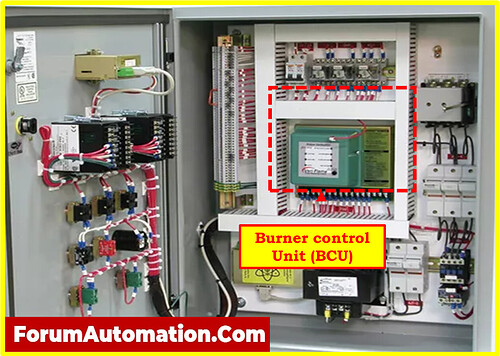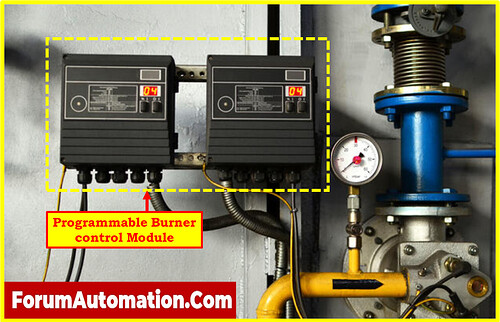What is burner control unit?
Burner Control Unit
A burner control unit is an important component of many industrial and household heating systems, including furnaces, boilers, and even some kitchen appliances such as stoves and ovens. Its basic duty is to control the combustion process within a burner in order to ensure safe and efficient functioning. The control unit is critical in controlling temperature, fuel efficiency, and, most critically, preventing potentially hazardous circumstances like as gas leaks and uncontrolled fires.
What is the function of burner control?
Function of Burner Control
The function of a burner control unit can be broken down into several key aspects:
Ignition Control
- One of the burner control unit’s initial functions is to manage the ignition process. When you switch on the heating system, it generates a spark or opens a gas valve to ignite the fuel supply, which could be natural gas or oil.
- This ignition process is monitored by the control unit to ensure that it occurs safely and reliably.
Flame Monitoring
- After the burner is fired, the control unit continues to monitor the flame. It evaluates the quality of the flame using sensors or other sensing devices.
- The control unit takes action to prevent the release of unburned fuel or the potential of a fire hazard if the flame goes out unexpectedly or shows abnormalities.
Temperature Control
- Temperature sensors in burner control units assist in maintaining the desired heat level. They can change the output of the burner to maintain a consistent temperature throughout the system.
- This is critical for both domestic heating system comfort and industrial application efficiency.
Safety features
- Burner control is all about safety. These units contain safety mechanisms that shut down the burner if abnormal conditions such as excessive heat, gas leaks, or obstructed airflow are detected.
- Such precautions avoid accidents and potential heating system damage.
Fuel Efficiency
- Burner control systems are meant to improve fuel economy in addition to safety.
- They may adjust the fuel input to match the heating demand, resulting in less energy loss and lower operating expenses.
Diagnostic and Reporting Functions
- Diagnostic and reporting features are included into many current burner control units, allowing them to identify and report system problems or maintenance requirements.
- This aids in prompt maintenance and prevents long-term damage.
What is a burner control module?
- A burner control module is a more advanced version of a burner control unit that incorporates microprocessors and digital technology for improved control and functionality.
- Because of their improved precision and adaptability, these modules are increasingly common in newer heating systems. Here are some key features of burner control modules:
Digital Control
- Burner control modules use digital technology to accurately regulate the combustion process.
- They can precisely control the fuel-air combination, monitor temperature, and modulate the burner’s operation.
Communication and Integration
- Many burner control modules may communicate with other system components and even connect to external control systems or home automation networks, allowing for improved system integration and remote monitoring.
User-Friendly Interfaces
- User-friendly interfaces, such as digital displays and buttons, are common in burner control modules, making it easy for users to set and alter temperature and other parameters.
Advanced Safety Features
- These modules typically have more advanced safety measures, such as enhanced flame monitoring and more detailed fault diagnostics, to ensure a better level of safety.
Energy Efficiency
-
Burner control modules excel at optimizing energy efficiency, lowering operational costs and impact on the environment.
-
They are capable of adapting to changing load conditions and adjusting the burner’s operation accordingly.
-
Burner control unit is an important component in heating systems that is in charge of the safe and efficient operation of burners.
-
It is in charge of ignition, flame monitoring, temperature management, safety, fuel economy, and diagnostics.
-
A burner control module, on the other hand, is a more advanced version that uses digital control, increased safety measures, and user-friendly interfaces to provide even more precise and efficient burner control.
-
Both units are critical to the effectiveness and safety of heating systems, whether in a household or industrial context.

